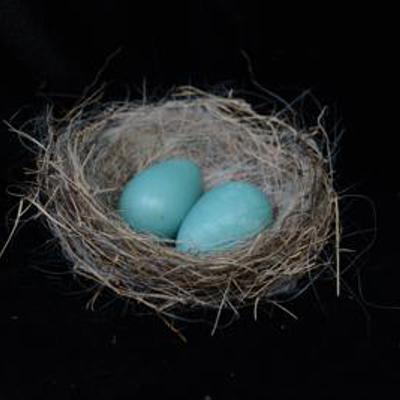
Parshas Ki Teitzei - The Value of Motherhood
Parshas Ki Seitzei teaches the mitzvah of shiluach hakein, sending away a mother bird before collecting the chicks or eggs from her nest. It’s a mitzvah that begs many questions, one of which is why is this mitzvah so significant that the doer is promised, “lmaan yitav lach”, so that it will be good for you, “vhaarachta yamim”, and you will live long? The only other mitzvah for which the Torah offers these promises is honoring one's parents. We may intuitively understand why honoring parents is significant and should have a blessing associated with it, but why this mitzvah of shiluach hakein?
Rav Shamshon Refael Hirsch has a unique perspective on this mitzvah that I’m excited to share with you. Imagine you’re walking down a country road and you find a mother bird sitting on her eggs or her young, and you have the opportunity to take both mother and babies home for your dinner! The mitzvah, says Rav Hirsch, is to take the mother. You can choose to take or not take the babies he says, but you must hold the mother and then “shaleach teshalach”, you have to let her go free. Why? Because at the moment you encountered her she was fulfilling her task of motherhood, caring for her young. When a mother bird is fulfilling her role as mother, she is afforded protection and freedom because you may not keep a mother bird you find in the midst of mothering.
The purpose of this mitzvah says Rav Hirsch is to make sure that every single member of Klal Yisrael is aware of the paramount importance the Torah ascribes to a woman’s activities in her home, even to the extent that we show appreciation to a mother in the animal kingdom by releasing a brooding mother bird. She is freed precisely because she was on the nest guarding her babies. Showing honor and respect to a mother, even an animal mother who is building her home, is the basis of a person’s happiness and future, hence “lmaan yitav lach”, it will be good for you. When a society respects the dignity of motherhood, it will be good for the people in that society and they will enjoy happiness and longevity. This is why the other mitzvah with this promise is honoring your parents. Both mitzvahs share an emphasis on the profound importance that the Torah places on parenting and the recognition and respect that each person must have for not only their parents, but for all mothers, even animal mothers.
Isn’t that spectacular? Most of us aren’t raising our children in a society which glorifies and honors motherhood, and many of us are probably not comfortable tooting our own horns and praising ourselves to our children, but if they don’t hear it from us, they may never hear it at all. The primary, foundational importance of motherhood has to be taught - hence this unique mitzvah, and it is our role not just to appreciate our own importance, but to communicate the importance of our task to our children too.
0 comments